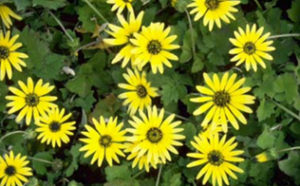
Figure 1. Capeweed (photo courtesy of HerbiGuide)
Description: Capeweed (Arctotheca calendula (L.) Levyns) is a stemless, annual herb with broad, deep-lobed, succulent leaves 30-250 mm long that have white furry hairs underneath and form a dense rosette. Yellow-petalled daisy flowers about 40 mm diameter with a black to brown centre appear in spring on individual 200 mm stalks. It has a taproot, with many laterals.
Life cycle: Capeweed is an annual weed that germinates in autumn/winter. Nearly all the seed germinates within a few weeks of the autumn rains. It grows rapidly in warm temperatures, often smothering companion plants in early winter. It flowers in late-winter/spring and dies off with the onset of summer.
As a soil indicator: Capeweed can be found on most soil types but prefers sandy soils and loams. It is an indicator of high phosphorus.
Beneficial attributes: Capeweed reduces leaching of nitrate. It provides habitat for the beneficial insects that target Lepidoptera, for which it is a host.
Negative attributes: Capeweed is a host for light brown apple moth and the larvae of 10 other species of Lepidoptera and red legged earth mite.
Dispersal: Capeweed seed is readily spread by animals, wind and water and in hay. It rapidly invades overgrazed or poorer pastures.
Legislation: None
Non-chemical control methods: Mow or graze regularly and close to the ground from autumn until spring to prevent flowering. Plant cover crops in cultivated, overgrazed or fire-affected areas to reduce re-establishment.
Grower’s experiences: Henschke has found that capeweed becomes an issue after fire in areas with bare soil. It is found to be a highly competitive weed because the blanketing nature of its huge rosette stops germination of other seeds. Henschke has had success controlling the weed using early sheep grazing, after leaf fall. Pre-pruning grazing can result in some damage to canes, but the weed management result is much better.
Resources
HerbiGuide (HerbiGuide website)
Henschke Wines: A non-chemical weed control case study from the Adelaide Hills, SA
Contact
For further information, please contact:
AWRI helpdesk
Phone 08 8313 6600 Email helpdesk@awri.com.au

